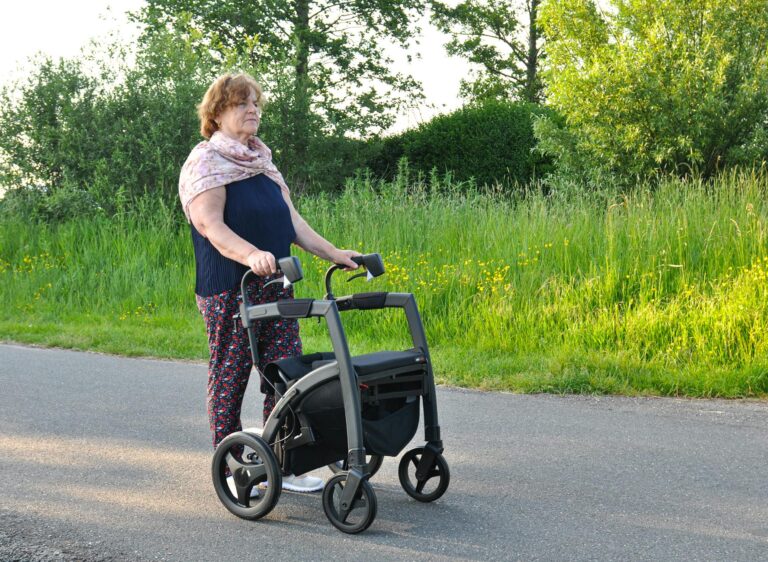
Dementia, a neurodegenerative disease that affects millions worldwide, is characterized by a progressive decline in cognitive abilities, leading to impairments in daily functioning. One often overlooked aspect of dementia is its effect on body weight, with patients experiencing either weight gain or weight loss. This article aims to discuss the factors that contribute to these fluctuations, the consequences of such changes, and possible interventions to address them.
I. Factors Contributing to Weight Fluctuations in Dementia
- Cognitive Decline and Memory Impairments
As dementia progresses, the decline in cognitive abilities can affect a person’s eating habits. Memory impairments may cause individuals to forget when they have eaten or that they need to eat, leading to weight loss. Conversely, some patients may overeat due to a lack of awareness of their previous meals, resulting in weight gain.
- Behavioral and Psychological Symptoms
Behavioral and psychological symptoms of dementia (BPSD) can include agitation, anxiety, apathy, and depression. These symptoms can directly impact appetite, leading to weight fluctuations. For example, depression may cause a decrease in appetite and subsequent weight loss, while anxiety may lead to emotional eating and weight gain.
- Medications
Some medications used to manage dementia symptoms, such as antipsychotics or antidepressants, can cause weight changes as a side effect. These medications may either stimulate or suppress appetite, leading to weight gain or loss, respectively.
- Physical Activity Levels
As dementia progresses, individuals may experience a decline in their physical activity levels due to mobility issues, fatigue, or apathy. Reduced physical activity may contribute to weight gain, while increased agitation and restlessness in some patients may lead to weight loss.
- Nutrition and Swallowing Difficulties
Dementia can cause changes in taste perception, food preferences, and chewing or swallowing difficulties, leading to malnutrition and weight loss. In some cases, individuals may develop a preference for high-calorie, sweet foods, resulting in weight gain.
- Caregiver Factors
The quality of care provided by caregivers plays a significant role in the weight fluctuations experienced by dementia patients. Caregivers may inadvertently contribute to weight changes by overfeeding or underfeeding the patient, misunderstanding their nutritional needs, or struggling to manage behavioral issues around mealtimes.
II. Consequences of Weight Fluctuations in Dementia
- Health Complications
Weight fluctuations in dementia patients can lead to a range of health complications. Weight loss can result in malnutrition, muscle wasting, and a weakened immune system, increasing the risk of infections and other medical issues. On the other hand, weight gain can contribute to obesity-related complications such as diabetes, cardiovascular diseases, and joint problems.
- Quality of Life and Disease Progression
Both weight gain and weight loss can negatively impact a dementia patient’s quality of life. Weight loss may lead to increased frailty, reducing mobility and independence, while weight gain can exacerbate mobility issues and increase the risk of falls. Additionally, malnutrition or obesity may contribute to faster cognitive decline, accelerating disease progression.
III. Interventions to Address Weight Fluctuations in Dementia
- Monitoring and Assessment
Regular monitoring of a dementia patient’s weight is crucial in identifying fluctuations and addressing their causes. Healthcare professionals should evaluate the patient’s overall health, nutrition, physical activity levels, medications, and any underlying medical conditions that may be contributing to weight changes.
- Individualized Meal Planning and Nutrition Support
Creating an individualized meal plan tailored to the patient’s preferences, nutritional needs, and any dietary restrictions can help address weight fluctuations. In cases of weight loss, incorporating nutrient-dense, high-calorie foods can improve nutrition. For patients experiencing weight gain, a balanced diet with appropriate portion sizes and healthier food choices should be encouraged.
- Environmental and Behavioral Interventions
Making mealtimes more enjoyable and less stressful for dementia patients can help regulate their eating habits. Interventions may include creating a calm and pleasant dining environment, offering finger foods for those with difficulty using utensils, or using visual cues to stimulate appetite. Additionally, addressing BPSD through non-pharmacological interventions can help improve appetite regulation.
- Physical Activity and Exercise
Encouraging regular physical activity can help dementia patients maintain a healthy body weight and improve their overall well-being. Tailored exercise programs that consider the patient’s abilities, preferences, and safety can be beneficial in managing weight fluctuations.
- Caregiver Education and Support
Educating caregivers on the nutritional needs of dementia patients, proper feeding techniques, and strategies to manage BPSD during mealtimes is crucial. Providing caregiver support through respite care or support groups can also help alleviate caregiver stress, enabling them to better care for their loved ones.
IV. Future Directions and Research
- Early Detection and Intervention
Further research is needed to understand the early signs of weight fluctuations in dementia patients. This could help healthcare professionals develop targeted interventions to prevent or minimize weight changes before they become more pronounced and difficult to manage.
- Technology-Assisted Monitoring and Interventions
The use of technology, such as wearable devices or smart home systems, could assist in the continuous monitoring of dementia patients’ weight, eating habits, and physical activity levels. These devices could also provide real-time feedback to caregivers, enabling them to make prompt adjustments to the patient’s care plan.
- Novel Therapeutic Approaches
Investigating novel therapeutic approaches, such as dietary supplements, appetite stimulants, or weight loss medications, could help address weight fluctuations in dementia patients. Further research is needed to determine the safety and efficacy of these treatments in this population.
- Multidisciplinary Approach
Emphasizing the importance of a multidisciplinary approach in managing weight fluctuations in dementia patients is essential. Collaboration between neurologists, geriatricians, dietitians, occupational therapists, physical therapists, and caregivers can lead to more comprehensive and effective care plans tailored to individual patients’ needs.
- Understanding the Relationship Between Weight Fluctuations and Cognitive Decline
Further research should explore the complex relationship between weight fluctuations and cognitive decline in dementia patients. This could help uncover potential mechanisms underlying the impact of weight changes on disease progression and inform the development of targeted interventions to slow cognitive decline.
Addressing weight fluctuations in dementia patients is a complex and multifaceted challenge. By improving our understanding of the factors that contribute to these changes and developing targeted interventions, we can enhance the quality of care and overall well-being for individuals living with dementia. It is crucial for healthcare professionals, caregivers, and researchers to collaborate and share knowledge to advance our understanding of weight fluctuations in dementia and develop innovative strategies to mitigate their negative consequences. By doing so, we can work towards improving the lives of dementia patients and their families, ensuring that they receive the best possible care and support throughout the course of their illness.





